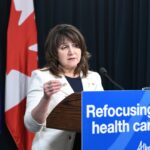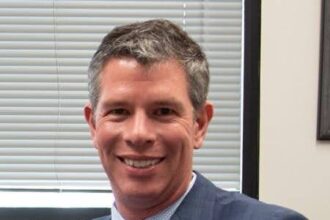Parents across New Brunswick are raising concerns as Horizon Health Network prepares to withdraw mental health counselors from public schools, a shift that many fear could leave vulnerable students without crucial support during critical developmental years.
The controversial change, set to take effect in September, will redirect Horizon’s integrated service delivery (ISD) counselors away from regular in-school positions to community-based mental health services. This restructuring comes amid a period when youth mental health concerns are at an unprecedented high, according to specialists at CO24 News.
“The timing couldn’t be worse,” says Margaret Wilson, mother of two teenagers in Fredericton. “Schools provide a safe, accessible environment where kids are comfortable seeking help. Removing these resources creates another barrier to treatment when we should be making support more available, not less.”
Horizon Health officials maintain the change aims to improve efficiency and reduce wait times for mental health services across the broader Canada healthcare system. In a statement, they explained the restructuring would allow for more specialized care delivery while ensuring resources reach more children.
However, educational experts argue the move contradicts established best practices in youth mental health intervention. Dr. Emily Sutherland, child psychologist and consultant to several New Brunswick school districts, explains: “Proximity matters tremendously in mental health care, especially for youth. When services are embedded within schools, utilization rates increase dramatically, and we catch problems before they escalate.”
Data from the province’s own health department reveals that school-based counseling services reached approximately 40% more students than community-based alternatives, with significantly higher engagement rates among vulnerable populations and families with transportation challenges.
Education advocates have launched a petition that has gathered over 5,000 signatures in just four days, demanding Horizon Health reconsider the decision. The provincial teachers’ association has also voiced strong opposition, warning that classroom teachers—already stretched thin—will inevitably absorb the fallout from diminished mental health supports.
“Teachers are not mental health professionals,” notes Stephen Williams, president of the New Brunswick Teachers’ Federation. “We’re seeing record levels of anxiety, depression, and behavioral challenges in classrooms. Without dedicated counselors on site, many warning signs will go unnoticed until situations become critical.”
The Department of Education has acknowledged parents’ concerns but deferred to Horizon Health regarding service delivery decisions. This jurisdictional gap has frustrated many political observers who note that siloed decision-making often fails to consider the interconnected nature of education and health outcomes.
The provincial opposition has called for immediate public consultations, arguing that such significant changes to youth mental health services warrant broader community input and transparent evaluation of potential impacts.
As September approaches, parents like Wilson feel increasingly anxious. “These counselors build relationships and trust with students over time. My son wouldn’t have made it through the pandemic without his school counselor. Where will kids turn when they’re struggling but don’t know how to ask for help?”
As this debate unfolds, the fundamental question remains: in our effort to optimize healthcare resources, are we inadvertently creating new barriers for the very children who need support most?

























